Sanyang in the West Coast Region of Gambia has for many years been synonymous with an idyllic tourism location. Holiday websites describe an area that boasts finely grained sand, remote and deserted lagoons and mouth-watering meals under beautiful African skies. And all of this is true of Sanyang – or was, until the arrival of big commercial fishing vessels off the coast and a fishmeal and fish oil factory on the beach.
For the local population, who vigorously assert that they were not consulted about the impact of these changes, the place has become anything but a paradise. Local people in Sanyang have gotten accustomed to the smell of rotten fish and smoke from the fishmeal factory. Mohammed, an environmental activist, told Amnesty International that the smell and the smoke is inescapable, seeping deep into people’s skin and homes. It is also a cloud hanging over their uncertain future.
Mohammed described his frustration with these words: “The smell just makes you angry. Thinking that we have been fighting for this for more than five years and nothing is happening. We are very very angry”.
Fishmeal and fish oil factories transform pelagic fish into fish oil or a powder called fishmeal, which is then used to feed farm animals and other fish, like salmon, in the aquaculture industry, usually in Europe, Asia and the Americas. It takes about 4.5kg of fish to make 1kg of fishmeal. Fish oil is also used in the form of pills as a food supplement. The fishmeal factory in Sanyang belongs to the Nessim Fishing and Fish Processing Co. Ltd, a Mauritanian-owned company, the last of the three such factories to be opened in Gambia.
In recent years, big foreign trawlers and the fishmeal and fish oil factories have been draining the Gambian coast of fish at a frenetic pace. Gambia exports almost 20,000 tonnes of fish annually through the activities of fishmeal factories, foreign industrial vessels and fish processors. Adding to that, the country, together with Mauritania, Senegal, Guinea Bissau, Guinea and Sierra Leone, lose about US$2.3 billion annually to illegal fishing.
The environmental footprint of big trawlers and the fishmeal factory is crushing. But the impact of this activity goes beyond overfishing, the destruction of ecosystems and sea pollution. The exploitation of fish stocks by larger boats is negatively affecting the livelihoods of artisanal fisherfolk.
The people of Sanyang acutely understand that the situation is harmful to them and their environment and that is not sustainable. At some point the factories and trawlers will move on, taking their profits with them and leaving local people with a devastated environment and economy and little future – and all that it could bring with it in terms of human misery and conflict.
Mohammed insists: “This is destroying ecotourism and employment, and it is pushing the youth to take the back door [irregular migration]. Now the local fishermen, instead of building their boats for fishing, they build them to sell tickets for the youth to migrate. Just recently, 150 of our youth left for Spain. It is a new business because fishing is not good anymore.”
According to Mohammed, community members have mobilized and knocked on all official doors to decry their situation to the authorities, to no avail. The failure of the authorities to take action to protect local communities and their rights to a decent environment and livelihoods is a source of deep frustration which is turning to outright anger.
Mohammed’s fears that, unless the government takes action to defend human and environmental rights, the future will be bleak for local people: “In five years’ time I foresee that, with the same government, these companies will still be here. Gambians will be hungrier, weaker, and this will bring more social and political instability”.
In March 2021, when a young Gambian man was killed by a man working on one of the boats hired by the fishmeal factory, young people in the community took part in a protest that spilled over into violence. Some 5,616 fishing nets, 10 fishing boats and 15 boat engines belonging to Senegalese fisherfolk were burned. The fishmeal factory was also partially burned down. Following these incidents, 50 youths from the community were arrested, some of them arbitrarily; 22 were initially charged in Brikama magistrates court with criminal offences. The charges were dropped by the magistrates’ court, but 13 men were then charged again, and their cases remain pending before the High Court.
Environmental degradation in Sanyang has resulted in misery for local people and people denied respect, rights and a sustainable future will express their frustration in many ways, including violence and conflict, when no other avenues are open to them. It is crucial that the Gambian authorities listen to what is happening and take steps to restore those rights, respect and futures for the people of Sanyang.
* A pseudonym has been used to protect the interviewee’s security and privacy.
VOICES of sanyang: #SaveGambianSeas #ProtectGambianCommunities
The members of the communities affected by the overexploitation of the seas through the activities of Nessim Fishmeal Factory and foreign industrial trawlers are sharing their stories with us. These firsthand stories are meant to let you know more about why we’re standing with Sanyang to save Gambian seas and protect Gambian communities rights.
Read MORE and act now.
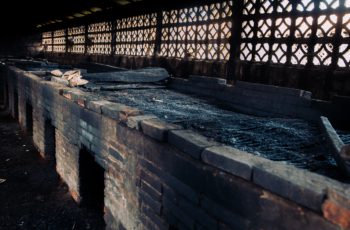 published on worLd ocean day – 8 JUNE
published on worLd ocean day – 8 JUNEAdja, the fish smoker
Read more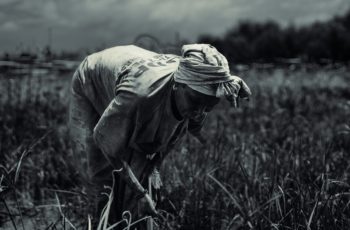 PUBLISHED ON 22 JUNE
PUBLISHED ON 22 JUNEHabibatou, the gardener
read more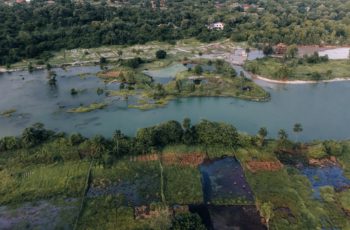 PUBLISHED ON 11 JULY
PUBLISHED ON 11 JULYBarry, the lodge owner
read more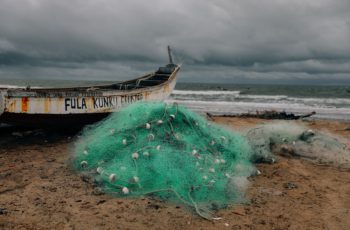 PUBLISHED ON 4 SEPTEMBER
PUBLISHED ON 4 SEPTEMBERIbrahima, the artisanal fisherman
read more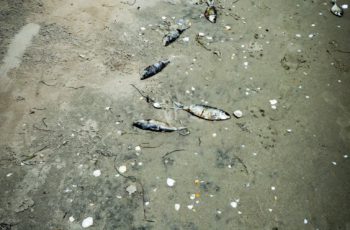 PUBLISHED ON 11 SEPTEMBER
PUBLISHED ON 11 SEPTEMBERMohamed, the activist
read more
